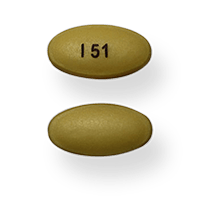The National Institute of Health (NIH) estimates that about 20% of the U.S. population has GERD. While there is not clear data showing gender as a factor for GERD, male-identifying patients with GERD do show higher rates of serious complications from the disease.
Acid Reflux

Acid reflux, also known as gastroesophageal reflux disease (GERD), is a medical condition where acid flows from your stomach into your esophagus and/or the back of your throat. While acid reflux is a common symptom that many people occasionally experience, you are diagnosed with GERD if you have mild acid reflux at least twice a week or moderate to severe reflux at least once a week.

People Affected
Risk Factors
There are a variety of risk factors for GERD:
Obesity
Certain medical conditions (such as hiatal hernia and connective tissue disorders such as scleroderma)
Pregnancy
Gastroparesis (delayed stomach emptying)
Smoking
Certain foods and beverages (especially fatty foods, fried foods, alcohol, and coffee)
Certain medications (such as aspirin)
Signs & Symptoms
There are a variety of symptoms of GERD, such as:
Heartburn, which is felt as a burning sensation in your chest, especially after eating or at night
Chest pain
Difficulty swallowing
Regurgitation of food, or the feeling of sour liquid in your mouth
The sensation of a lump in your throat
Chronic cough
Laryngitis
New or worsening asthma
Disrupted sleep
It is important to note that some people also have GERD without having symptoms.
Pharmacist Tip
Proton-pump inhibitors (PPIs), such as omeprazole, esomeprazole, and lansoprazole, can inhibit calcium absorption longterm and lead to bone weakness. There are alternatives called H-2 blockers (such as famotidine and ranitidine) that may be another option—speak with your doctor if this is of interest.
Acid reducing medications may cause serious interactions with other medications, so make sure to always tell your pharmacist every medication you are taking, including over-the-counter medications. These drugs work best when taken on an empty stomach at least 30 to 60 minutes before your first meal of the day. Typically, PPIs are taken once daily and H2RAs are taken twice daily, and you should try to take the medicine at the same time every day. H2RAs provide faster relief after a trigger when compared to a PPI. If you are experiencing a more severe episode, you can supplement with antacids for immediate relief.
Lastly, no matter what medication you are taking, do not delay treatment or follow-up appointments with your doctor, as acid reflux medications can mask serious underlying conditions. Also, ask your doctor about whether it is necessary to use an imaging exam to rule out other causes of acid reflux.
Medical Experts
Primary Care Doctor: Your general doctor can diagnose and treat acid reflux.
Gastroenterologist: Gastroenterologists are doctors who specialize in digestive disorders and the digestive tract. Your primary care physician may recommend you to a gastroenterologist if you frequently have acid reflux, the symptoms are severe, or more thorough testing (such as an endoscopy) is needed to check for complications of GERD.
Diagnosis
A doctor can typically diagnose acid reflux disease based on a physical examination and your symptoms. Your doctor might also perform an upper endoscopy, an ambulatory acid (pH) probe test, an esophageal manometry, and/or an X-ray of your upper digestive system, especially if you do not feel symptoms and/or complications are suspected.
Prescription Treatment
There are three types of medications commonly used to help treat acid reflux:
Proton pump inhibitors (PPIs): esomeprazole (Nexium), lansoprazole (Prevacid), omeprazole (Prilosec), pantoprazole (Protonix), rabeprazole (Aciphex), and dexlansoprazole (Dexilant)
H-2-receptor blocks (H2RAs): famotidine (Pepcid) and cimetidine (Tagamet).
Antacids: commonly contain calcium carbonate like Tums or Rolaids or magnesium like Milk of Magnesia, Mylanta, or Maalox.
All three categories work to decrease stomach acid production, but antacids are the best option for quick relief and work within five minutes. That said, antacids have the shortest duration of action, meaning they only work for 30 to 60 minutes at best.
H-2 blockers block histamine, an inflammatory agent that stimulates the stomach to produce acid. H-2 blockers are only for short-term use and work best when taken up to an hour before food or drink that may cause your reflux. Because they are only good for short-term use, H-2 blockers usually stop working after a while because your stomach adjusts.
When H-2 blockers aren’t working anymore or you have acid reflux for more than two weeks, it’s time to try a PPI such as omeprazole or esomeprazole. With the exception of Pantoprazole (Protonix), all PPIs can be found over the counter but are usually less expensive with a prescription! PPIs should be taken on an empty stomach 30 minutes to an hour before a meal (breakfast preferred) at the same time every day. PPIs work within 24 hours, so only need to be taken once a day. In some patients, it can take one to four days for the full effect.
Not all generics are the same. Different people respond better to different versions of the same drug, depending on the manufacturer. You can search our website to find the best fit for you.
Lifestyle Remedies
There are many lifestyle choices you can make to manage acid reflux disease and prevent symptoms. Some foods and drinks trigger acid reflux, especially fatty foods, fried foods, acidic foods, alcohol, coffee, chocolate, mint, garlic, onion, spicy foods, and dairy. However, this varies from person to person, so you might have to experiment to find out what foods and drinks trigger your reflux. Try to avoid eating large meals, eating meals late at night, eating too quickly, or lying down or exercising soon after eating a meal, as these can all cause the backward flow of acid into your esophagus. Maintaining a healthy weight will also help reduce your acid reflux. You can also try elevating the head of your bed while you sleep and avoiding tight-fitting clothing.

